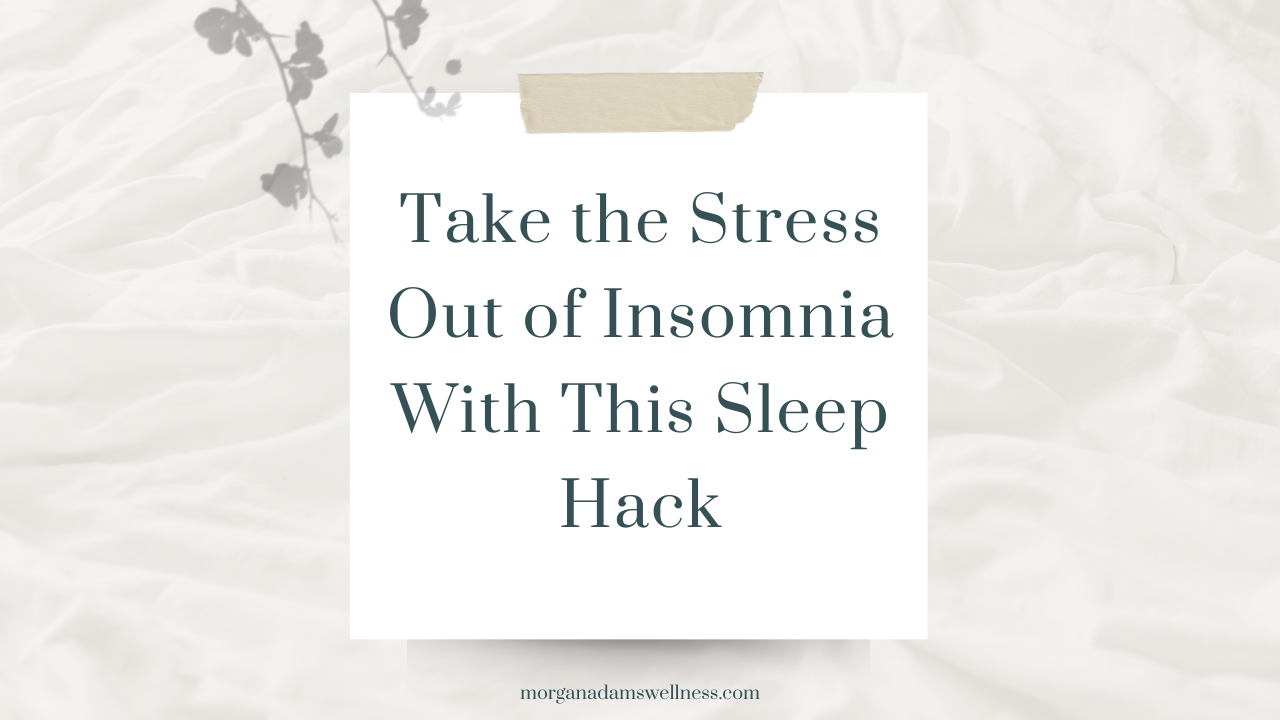Take the Stress Out of Insomnia With This Sleep Hack

Optimize your sleep by tracking specific metrics and doing this one thing to find lasting insomnia relief.
If you’re struggling with sleep and can’t figure out why, well, congratulations: you’re one of millions in the same boat. In other words, you’re not alone. Insomnia, a relatively common sleep disorder characterized by an inability to fall and/or stay asleep, affects between 33-50% of the adult population. But if a bunch of us staring at the alarm clock all night at the same time feels a little less than serendipitous, rest assured there are effective ways to combat this burdensome sleep issue.
In fact, one thing in particular can yield valuable insights to help you identify patterns that might be affecting your sleep and even be a catalyst to improved sleep and higher quality rest. Finding a solution to just about any ailment requires collecting and analyzing data. The data then can help you determine if implemented solutions are improving or adversely affecting your desired outcome. When it comes to wielding every weapon in your arsenal against insomnia, this one underrated practice can make all the difference, especially if you stay consistent with it.
That one sleep hack is keeping a nightly sleep journal. How Journaling Can Help Your Insomnia
Every client I work with records key metrics because data is power when it comes to optimizing sleep. And while there are many misconceptions out there about journaling, it can actually be a relatively easy addition to your nightly routine and more importantly, can bring incredible results. It’s simple. Here’s how to do it:
All you need to do is record some daily information such as:
- What time you went to bed
- How long you think it took you to fall asleep
- How many times you woke up during the night and how long the awakenings were
- What time you woke up in the morning
Tips for Effective Sleep Journaling
To really optimize the data collected, it is also encouraged to input workouts, caffeine, alcohol, or anything you suspect could be impacting your sleep.
Keep your sleep journal in a place where you will see it and be reminded to write in it each day, whether that’s next to your bed or on your desk at the office. In any case, be sure to write in it each day for best results.
Don’t get lost in the details. There’s no need to get caught up with exact times and numbers —you’re simply looking for general trends in your sleep patterns.
Stop watching that clock! Clock watching can often lead to more anxiety about your sleep. Thus, it is recommended not to have a clock next to your bed.
How to Interpret Data From Your Sleep Journal
After you’ve used your journal for about a week you’re going to start noticing some patterns from what you’ve recorded in your journal. This can help inform you about what could be creating your sleep problems. And even better, it can inspire behavioral habit change to help you get back on track.
For example, if you discover that you have trouble sleeping on nights when you’ve scrolled Instagram until midnight, then that might be your sign it’s time to implement a digital curfew. If your sleep suffers after you join coworkers for a later-than-usual happy hour, you know sticking to an earlier nightcap might do the trick.
Feeling inspired to test out a sleep journal? Here’s a good one to use. If this journal doesn’t float your boat there are many more to be found doing an online search.
After a couple of weeks, if you’re not able to figure out what’s to blame for your sleep issues, it’s probably a good time to bring in a professional to help you troubleshoot and formulate a plan for how to get your sleep back on track.
Struggling with Insomnia? A Sleep Coach Can Help
As a former insomniac whose mood, energy, and overall health were impacted by a lack of quality sleep, I went on my own journey after a decade of dependence on sleep medication to improve my health and life by improving my own sleep.
Now I work with women to “makeover” their sleep protocols so they fall asleep faster, sleep longer, and wake feeling refreshed.
If you are ready to create your own sleep sanctuary and overcome the “sleep stealers” that are keeping you from feeling your best, contact me today for a free discovery call. And if you want to fall asleep faster, stay asleep longer, and feel more rested when you wake up, download my free Sleep Sanctuary Checklist!
